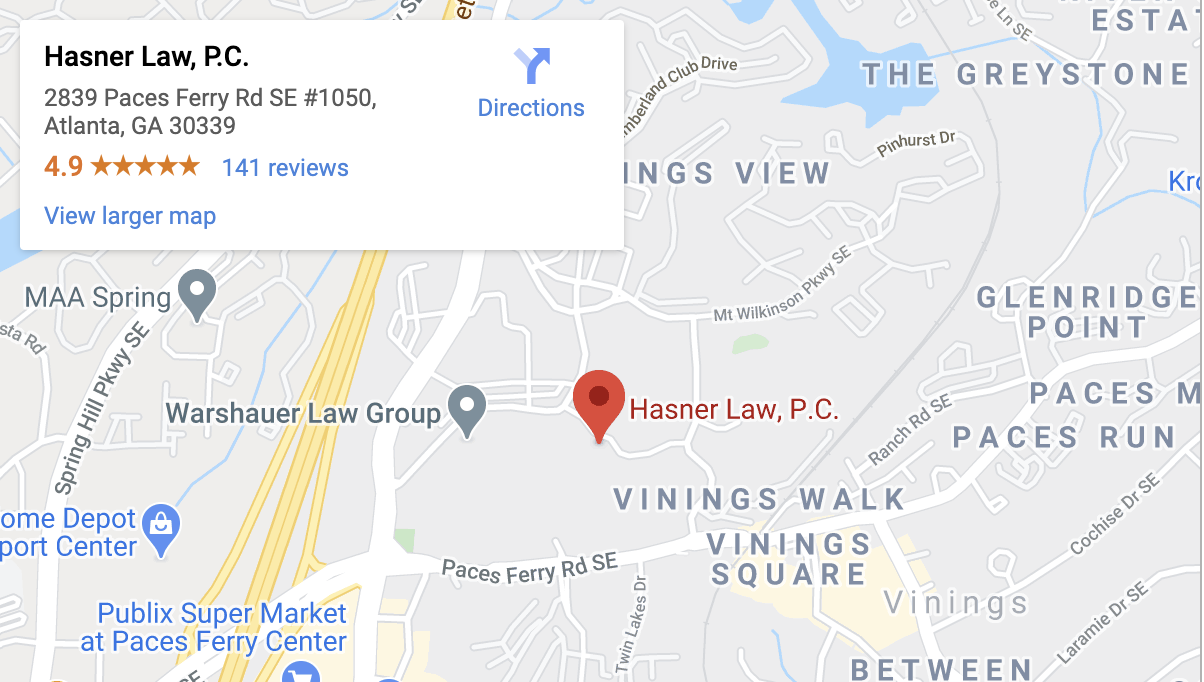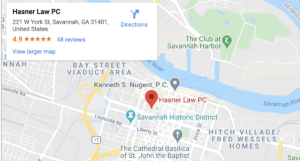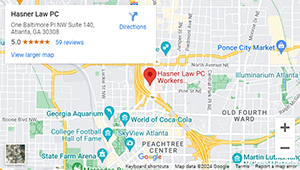Atlanta Bad Faith Insurance Claim
NOTE: Our law firm does not handle these cases. This article is for informational purposes only. Information found in the article does not constitute as formal legal advice and does not create an attorney/client relationship.
Has an insurance company in Atlanta wrongfully denied your insurance claim or made it incredibly difficult for you to recover benefits you deserve? Contact an attorney to discuss your legal rights and options. If your insurer has engaged in bad faith practices, you might be entitled to compensation on top of what you are already owed.
Why Do I Need a Personal Injury Lawyer If My Insurance Company Acted in Bad Faith?

Despite what they might say in commercials on TV, insurance companies are not on your side. They’re in the business of making money. What hurts profits? Paying out benefits to their policyholders and anyone else who files a claim. So, insurance companies will go to great lengths to deny claims and minimize any amounts they do ultimately pay. Unfortunately, many insurance companies engage in bad faith practices in the process.
However, insurance companies are hoping that you don’t notice. They’re hoping that you’re not aware of your legal rights and the company’s obligations to you. Your insurer hopes that you’ll accept their answer regarding your claim without question.
If you suspect that something isn’t right with your insurance claim, it’s important to consult an experienced bad faith insurance lawyer in Atlanta. At Hasner Law, our attorneys have more than 80 years of combined experience going toe-to-toe with insurers. We’re all too familiar with their manipulative tactics and bad faith practices.
When you call us for help, we’ll carefully review your case and scrutinize how the company has handled your claim for benefits. If we determine that the company has engaged in bad faith practices, we will fight tirelessly to prove it and hold the insurer accountable for the damage they’ve caused.
If you’ve been injured, a prompt financial recovery can help to make a difficult time a little bit easier. We know that a bad faith denial of benefits – or even a delay in receiving compensation – can be devastating to you in your time of need. Call a team of Atlanta personal injury attorneys today to schedule a free consultation to learn more about how we might be able to help.
What Does Bad Faith Mean?

Sometimes you’re required to purchase insurance. For instance, insurance coverage is required when you register a car with the state of Georgia. Other times, you might have the foresight to purchase an insurance policy to protect you if something goes wrong (e.g., homeowners’ insurance, health insurance, business liability insurance). In order for these policies to be effective, you make regular payments. You’re not paying an insurance company out of the goodness of your heart. Rather, you’re paying the insurer so that you can recover monetary benefits if you or someone else gets hurt.
Insurance companies have a legal obligation to consider any claims submitted to them in good faith. This is true for first-party and third-party claims. First-party claims are those filed directly by the policyholder. Third-party claims are those filed by someone who is injured by the policyholder. For instance, after a car accident in Georgia, you might decide to file a claim with the at-fault party’s insurer. That would be a third party claim.
If an insurance policy is in good standing – meaning that it’s up-to-date on payments – the company can only deny a claim if it has a legitimate reason to do so. Claims must be handled in a timely manner – they can’t be drawn out unnecessarily. Any efforts to deny, delay, draw out or claim that’s covered by a policy without a legitimate reason would be considered bad faith practices.
As one court explains, bad faith “imports a dishonest purpose, moral obliquity, conscious wrongdoing, breach of a known duty through some ulterior motive or ill will partaking of the nature of fraud. It also embraces actual intent to mislead or deceive another.”
Simply put, bad faith means that an insurance company is trying to get out of its legal obligation to fulfill the terms of your legally-binding contract.
Signs of Bad Faith Insurance Practices
Here are a few examples of what bad faith insurance practices look like:
- Denying a claim without providing reasonable justification.
- Failing to pay or deny a claim within a reasonable period of time.
- Refusing or failing to communicate with an insurance claimant.
- Extending the amount of time a claim is open without reason.
- Delays payment of a claim.
- Fails to investigate the damage that’s subject to a claim.
- Investigates a claim in a biased manner.
- Devalues a claim without having a legitimate reason to do so.
- Refusing to defend a lawsuit when required to do so.
- Intentionally providing bad advice to a claimant.
This is not an exhaustive list of bad faith practices. Any time an insurance company or adjuster attempts to violate your rights and its obligations to you, it might be acting in bad faith. The best course of action is to seek the advice and counsel of an experienced bad faith insurance lawyer near you. Call Hasner Law for assistance today.
We Handle All Bad Faith Insurance Claims
It doesn’t matter if you’ve filed a claim against your own insurance policy or with someone else’s provider. If you’ve been harmed because of an insurer’s bad faith practices, Hasner Law will be there to help you fight to hold them accountable. We represent clients in bad faith actions involving providers of:
- Car insurance
- Homeowner’s insurance
- Business liability insurance
- Fire insurance
- Flood insurance
- Legal malpractice insurance
- Medical malpractice insurance
- General commercial liability insurance
- Medical insurance
- Workers’ compensation insurance, and more.
You can count on our Atlanta personal injury attorneys to help you, no matter what type of insurance claim you’ve submitted. We’ll carefully investigate the underlying claim, determine if and how the insurer acted in bad faith, and work diligently to recover compensation on your behalf.
What Damages Are Available in Bad Faith Insurance Cases?
There are three different types of damages that might be available in your Atlanta bad faith insurance case: special, general, and punitive.
Special Damages
Special damages, which are also sometimes called economic damages, are those paid to compensate for the economic losses you suffer because of the insurer’s bad faith practices. This might include lost wages or attorneys’ fees. An award of special damages should put you back in the financial position you were in before you were harmed because of the insurer’s bad faith conduct.
General Damages
General damages, which are sometimes referred to as non-economic damages, are those paid to make up for the pain and suffering you experience as a result of the bad faith practices. Delaying an insurance payout or denying a claim can have devastating consequences. It can cause you to suffer unnecessarily, experience anxiety or depression, and fundamentally change your life. Receiving general damages can help to compensate for the short-term and long-term consequences you experience because your claim was wrongfully delayed or denied.
Punitive Damages
If it’s determined that an insurance company acted with actual malice or willful misconduct when handling your claim, you might be entitled to an award of punitive damages. Punitive awards are intended to punish the insurer for their wrongful conduct. These awards are paid out in addition to any compensatory (e.g., special and general) damages you receive.
How Long Do I Have to File a Bad Faith Insurance Claim in Atlanta?
If an insurance company violates Georgia law and engages in bad faith practices, you might have a legitimate claim for damages. However, you’ll have a limited amount of time to initiate a lawsuit. In Georgia, bad faith is a type of contract violation. In turn, this means that you’ll typically have six years from the date of the breach to file a bad faith insurance lawsuit and demand compensation.
Keep in mind that some insurance policy contracts might have clauses that limit the statute of limitations. It’s important to enlist the help of an attorney as soon as you discover that your insurer hasn’t acted in good faith. Hasner Law can review your contract, determine which laws might be applicable, and work to ensure that your claim is filed in a timely manner.
Let An Atlanta Bad Faith Insurance Lawyers Help You
Did an insurance company in Georgia wrongfully deny a legitimate claim or delay payments once you reached a settlement agreement? A law firm can help you understand what legal options might be available to you, including the possibility of filing a bad-faith insurance lawsuit.






